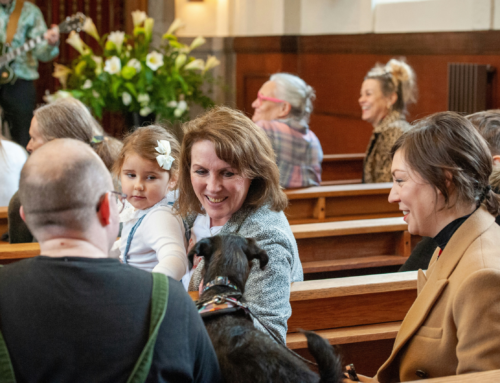By Dwayne Milley
In the past few months, I’ve been reading the Gospels. Between the worldwide pandemic and the divisive politics, I’ve been needing to focus on Good News. I’ve not been disappointed as I read about Jesus – his life, his person, his teaching, and his posture toward others – that’s good news! It was a little odd, too – in a world lead by an oppressive government, where his people were calling for revolution, and where the government crucified people for any and every reason, Jesus said, ‘take up your cross and follow me’. He was starting a revolution, but not anything like the people of the day had in mind.
As I read, I come across these gems of stories and notice things I hadn’t notice before. For example, we’ve often heard the story of the Good Samaritan, where Jesus shared a parable to make a point about being neighbourly. But then there’s the story from Luke 17 about the Grateful Samaritan. In fact, it’s not a story, but an event that Jesus experienced and Luke recorded. Here’s an excerpt:
“As he was going into a village, ten men with leprosy came toward him. They stood at a distance and shouted, “Jesus, Master, have pity on us!” Jesus looked at them and said, “Go show yourselves to the priests.” On their way they were healed. When one of them discovered that he was healed, he came back, shouting praises to God. He bowed down at the feet of Jesus and thanked him. The man was from the country of Samaria.” — Luke 17:12-16 CEV
Now, that might not seem like much – there was one grateful person among the ten who were healed, and he came back to say thanks. The moral – don’t be ungrateful like the nine, but make it a point to say thank you, like the one.
But Luke makes the point that the man was from Samaria. If you don’t know, Jesus spent most of his ministry in Israel. For this event, he was travelling along the border of Samaria and Galilee, headed to Jerusalem (Luke 17:11). We don’t know which side of the border he was on, and we don’t know the nationality of the other nine men. Generally, though, we know Jesus’ focus was the people of Israel, and we know that they were largely unreceptive (John 1:11).
Two things stood out to me as I read about the man who came back to say thanks. First, being ‘othered’ can unite people. These ten men shared one thing in common – they had leprosy and they were outcast by their people. The Jewish people hated the Samaritans and refused to associate with them. Leprosy wasn’t specific to nationality or limited by borders. These ten men were together. This matters to me, as I think about disability and the ministry of Christian Horizons. In today’s world, people with disabilities are largely ‘othered’, and there’s movement of self-advocacy afoot among them. There’s no telling what can happen when people unite across differences. We have also seen that this year as the world has united to develop a vaccine to respond to a virus that is affecting us all.
Second, and perhaps more significantly for me was that the man who came back to say thanks was from Samaria. Jesus asked, ‘Weren’t ten men made clean? Where are they? Only this foreigner came back to praise God.” (Luke 17:17). Then he told the man, “Get up, and go home! Your faith has made you well.” Here’s the lesson for me – no matter who we are or where we are from, no matter our ‘condition’, Jesus says, ‘you’re in’. In fact, Jesus says we’re all in, and there is no ‘out’. As people who follow Jesus, this means we must practice this approach in our lives and work.
For Christian Horizons, while society might see people with disabilities to be ‘others’, we desire that people who experience disabilities belong to communities in which their God-given gifts are valued and respected.
To be clear, while I named this article ‘The Grateful Samaritan,’ my personal takeaway here is not that people who experience disabilities need to be more grateful than anyone else. My key takeaway, and the point I hope is clear to you, is that Jesus overturned the thought of the day about who can know and experience faith, and who is ‘acceptable’ or not. At Christian Horizons, we’re working hard to help the watching world see that Jesus’ message and welcome extend to people who experience disabilities, and that people who experience disabilities are worthy of the belonging into which Jesus welcomes all of us.
And that’s good news!


Dwayne Milley serves as Vice President of Operations at Christian Horizons and is a regular contributor to the Forum. He lives with Karen and Deepika, his wife and daughter, in Toronto, Ontario.


